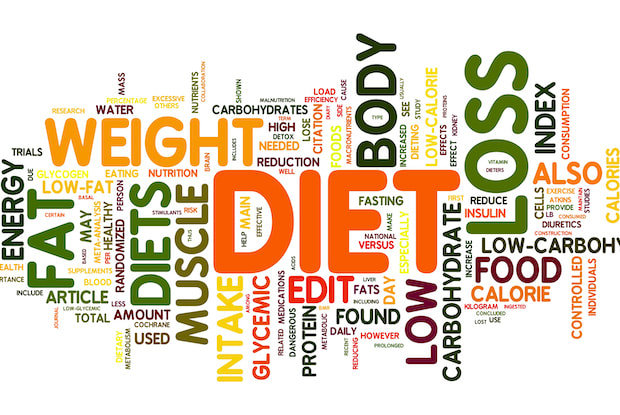What to Know About the Effectiveness of Oral Weight Loss Medications
What to Know About the Effectiveness of Oral Weight Loss Medications
Table of Contents
I. How Oral Medications Help with Weight Loss
II. What the Research Says About Effectiveness
III. Benefits and Considerations
IV. Questions to Ask Before Starting
As the demand for non-invasive weight loss tools grows, prescription pills have gained traction as part of supervised treatment plans. But how effective are they? And who are they really for?
Understanding how these medications work—and what they can and can’t do—can help set realistic expectations. While some patients report noticeable results, others may find the process slower or more subtle. Like any treatment, effectiveness can vary widely depending on health history, adherence, and accompanying lifestyle changes.
This article breaks down the facts about oral medications for weight loss: how they work, what results to expect, and what questions to ask your provider before starting. Whether you're considering your first prescription or just weighing your options, getting informed is the best first step.
Quick Takeaways
- Oral weight loss medications can support long-term weight management
- These pills work by reducing appetite or limiting fat absorption
- Effectiveness depends on consistency and lifestyle changes
- Most options require a prescription and medical supervision
- Side effects vary by medication type and personal health history
- Oral medications are not a quick fix but a tool within a broader plan
How Oral Medications Help with Weight Loss
They Target Hunger and Absorption
Oral weight loss medications help by either reducing hunger or blocking fat from being absorbed. Some do both. Appetite suppressants tell your brain you’re full sooner, so you eat less. Fat blockers prevent your body from absorbing some of the calories you eat. These changes make it easier to reduce the amount of food or fat you consume each day. Over time, this can help with slow but steady weight loss, especially when combined with healthy eating and exercise.
Common Prescription Options
Many oral medications are approved for long-term use and work in different ways. Some act on the brain to reduce hunger or cravings, while others affect how your body handles food and digestion. These medications often come with their own set of side effects, which can vary from person to person.
Some may increase energy levels, while others change how full you feel after eating. Before starting, your provider will consider how each option might fit your needs, especially if you have other health concerns or take additional medications.
Not a Substitute for Lifestyle Changes
Medications are most effective when paired with healthier eating habits and increased activity. On their own, they usually lead to modest weight loss. But when used in tandem with a structured program, they can significantly improve outcomes and help sustain results over time.

What the Research Says About Effectiveness
Typical Results Based on Studies
According to researchers, most people lose between 5% and 10% of their body weight over six to twelve months when using oral weight loss medications. 1 That might not sound like much, but even small changes can lower the risk of serious health problems like high blood pressure, heart disease, and type 2 diabetes.
Some key findings include:
- Consistent use leads to better results
- Pairing medication with lifestyle changes improves success
- Most people experience a plateau over time
Results vary from person to person. Those who make steady, long-term changes to eating and activity habits tend to keep more weight off. While progress might slow, sticking with the plan gives you a better chance of maintaining your results.
Variables That Affect Success
Several factors can influence how well these medications work. Your starting weight, metabolic health, coexisting conditions, and even genetics all play a role. Medication adherence and consistency are critical. Missing doses or cycling on and off can reduce effectiveness. Emotional and psychological support is also important, especially for those with a history of emotional eating or disordered patterns.
Benefits and Considerations
Why Some People See Strong Results
People who respond well to oral weight loss medications often stick to daily routines and set realistic goals. These habits make it easier to manage changes in appetite and build lasting health improvements.
Many of the most successful users also:
- Follow a regular meal schedule
- Have support from family or professionals
- Track progress with simple tools like journals or apps
Some people feel more in control of their eating habits soon after starting medication. This can break old cycles of yo-yo dieting and emotional eating. When positive habits are built early, they tend to stick around longer.
While results can vary, creating structure and setting goals can make a big difference. A little planning and encouragement can go a long way in helping you succeed with your weight loss plan.

Risks and Side Effects to Watch For
Not everyone reacts the same way. Some experience side effects like dry mouth, dizziness, or gastrointestinal discomfort. Others may need to stop taking the medication due to blood pressure changes or mood-related issues. Long-term safety is a concern for some medications, so ongoing monitoring by a provider is key. Understanding potential risks before starting helps patients weigh the pros and cons clearly.
Questions to Ask Before Starting
What to Discuss with Your Provider
Before starting any weight loss medication, it’s important to ask about the potential benefits, side effects, and how the drug fits into your broader health picture. Consider questions like:
- What results should I expect?
- How long will I need to take it?
- What happens if I stop taking it?
- How will this affect my other medications?
Asking these questions can help you feel more confident and better prepared before beginning treatment.
Checking for Insurance and Eligibility
Most prescription oral medications require prior authorization or medical documentation. Insurance coverage can vary widely depending on your plan. Be ready to provide a history of past weight loss attempts and related health conditions. Some providers may also require lab work or a BMI threshold. It’s helpful to prepare ahead with insurance questions to avoid surprises when it’s time to fill your prescription.
Learn More With ScriptsMD
Oral medications for weight loss aren’t a miracle fix, but they can offer a meaningful edge when used as part of a larger plan. Their success depends heavily on adherence, lifestyle shifts, and support from a knowledgeable healthcare provider. While not suitable for everyone, they can be an effective option for those struggling to lose weight through diet and exercise alone.
For more support navigating your insurance benefits for weight loss treatments, contact ScriptsMD today.
References
- Wissam Ghusn, Alan De la Rosa, Daniel Sacoto, et al. Weight Loss Outcomes Associated With Semaglutide Treatment for Patients With Overweight or Obesity
